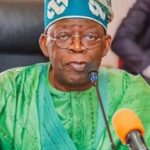When the seat you are sitting on is the target of your competitors, there is nothing you can do to please those who are contending for the seat. It doesn’t matter how hard you try or how sincere your intentions are; they will always find a reason to complain.
When people begin to question whether he can turn around Nigeria’s struggling economy, the more pressing question becomes—if Tinubu cannot, then who possibly can?
This bold statement sheds light on a growing tension in Nigeria’s power dynamics—why the Sultan fears social media. In truth, it’s because social media has become the people’s weapon against Nigeria’s entrenched power establishment
The global billionaire landscape is a dynamic and ever-evolving picture, reflecting the shifting sands of economic power, industry dominance, and societal change
Donald Trump is a man whose name alone splits the world into love and hate: To some, he’s a devil in a red tie, to others, he’s a modern-day prophet wielding divine justice. But in this moment, as the U.S. Treasury launches a historic global crackdown on illicit dollar fortunes, even his fiercest critics must ask: Is this the wrath of God
Trump’s tariff-centric approach is built on an outdated view of America’s economic reality. The United States is no longer defined by factories but by code, services, and ideas.
While the U.S. and China are the main players, the consequences are being felt globally, especially in developing nations.
Reflectively, the current state of Nigeria’s prison system reflects broader governmental and societal negligence.
The forests of Yorubaland have turned into the devil’s camp of Fulani herdsmen kidnappers.
Kidnapping has become a national emergency in Nigeria. It is no longer confined to the wealthy, the politically connected, or the privileged few.















